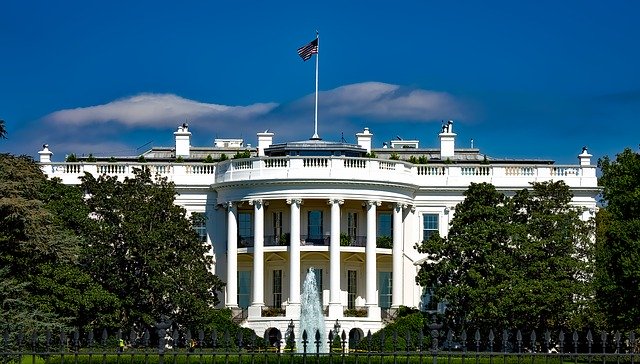
By Kurt Jensen
WASHINGTON (CNS) — Catholics’ hunger for a moral vocabulary in the final two months of the presidential race is unlikely to be successfully addressed by either nominee.
Other than the terror of COVID-19, there appears to be no single issue to effectively rally around, participants in an online Georgetown University panel observed Sept. 8.
“Catholics are looking for the silver bullet — who are we to vote for as Catholics?” said Stephen White, executive director of the Catholic Project of The Catholic University of America. “We are called to tolerate the world as we find it, not the world as we wish it was.”
“There will never in your life be a perfect candidate. There is no messiah coming in American politics,” said Meghan Clark, an associate professor of moral theology at St. John’s University in New York.
Democrats Joe Biden, a Catholic, and Kamala Harris both support legalized abortion, and Harris’ attack on federal judge nominee Brian Buescher in December 2018 for his membership in the Knights of Columbus brought accusations that she is an anti-Catholic bigot as well.
Harris had insinuated that by being a Knight, Buescher was disqualified from serving on the bench, because the fraternal organization supports traditional marriage between one man and one woman and opposes abortion. She asked if, when he joined the organization, he was aware the Knights of Columbus “opposed a woman’s right to choose” and “opposed marriage equality.”
President Donald Trump and Vice President Mike Pence both oppose abortion and would like to see the Supreme Court’s 1973 Roe v. Wade ruling, which legalized abortion on demand, reversed.
But the administration’s policies toward immigrants in the country illegally, its restrictions on legal immigration and its criticism of the Black Lives Matter movement for racial equality are not in line with Catholic social teaching about helping the poor, vulnerable and disenfranchised.
Abortion “is so widespread that I think a lot of us take it for granted,” White said. Although he acknowledged that it “tears at the fabric of the family and the very foundations of society,” he added that the debate “turns off a lot of young people.”
Still, White concluded, “I don’t know how I could support someone who sees the evil of abortion as a fundamental right.”
Political arguments at home need to be kept civil, said Charlene Howard, chair of the religion department at Archbishop Carroll High School in Washington. “Secondly, I think that for young adults in particular, recognizing that we have a responsibility to bring the truth not only to power … but also to ourselves, our neighbors and our family members.”
The challenge is to have a conversation with “someone with diametrically opposing views to you” without “getting angry and cussing them out. You really have to put yourselves in that position where you can listen,” Howard said.
Pandemic isolation has hobbled that communication, said Abigail Galvan, the communications and program officer of the Crimsonbridge Foundation, a philanthropic organization.
Although she concluded “that from talking to a lot of my peers, there’s a sense of the weight of this election” and that she sees “a yearning for what is good, and for justice, to be manifest,” the additional problem is that stay-at-home orders mean “we stay in these little silos on social media.”
Clark invoked prudential judgment — the application of moral principles in particular cases — when asked whether Catholics should align with one political party.
Prudential judgment, she said, “is not a get-out-of-jail-free card.”
“The thing about Catholic social teaching and Christian ethics more broadly, is that more is always asked of us. We need to practice listening as an ethical practice. And part of that is listening to those we disagree with.”
Abortion, Clark said, is not only the question for women who may be uncomfortable with Democrats. “But it’s also the question of those living in poverty. It’s also a question of the unemployed.”
And as for the application of prudential judgment in politics, “I can’t make it looking only at what are the easy issues.”
White complained of “this reduction of citizenship … to the act of voting.” The work of citizenship can be “showing up to support a peaceful protest. Good citizenship starts at home,” he said. But COVID-19 “hasn’t helped those relationships, let’s be honest.”
Asked the responsibility of Catholics to respond to the polarization in public life, Howard said she reminds young adults, “Control is not your god. Jesus Christ is your God.”
She added, “Practice being open and listening to all points of view, then go into prayer about those things.”
The Sept. 8 online discussion — “Election 2020: Left, Right or Politically Homeless?” — was sponsored by Georgetown’s Initiative on Catholic Social Thought and Public Life as one of several Salt and Light gatherings for Catholics under 40. It was co-sponsored by the Archdiocese of Washington’s DCCatholic Young Adult Ministry Theology on Tap program.
